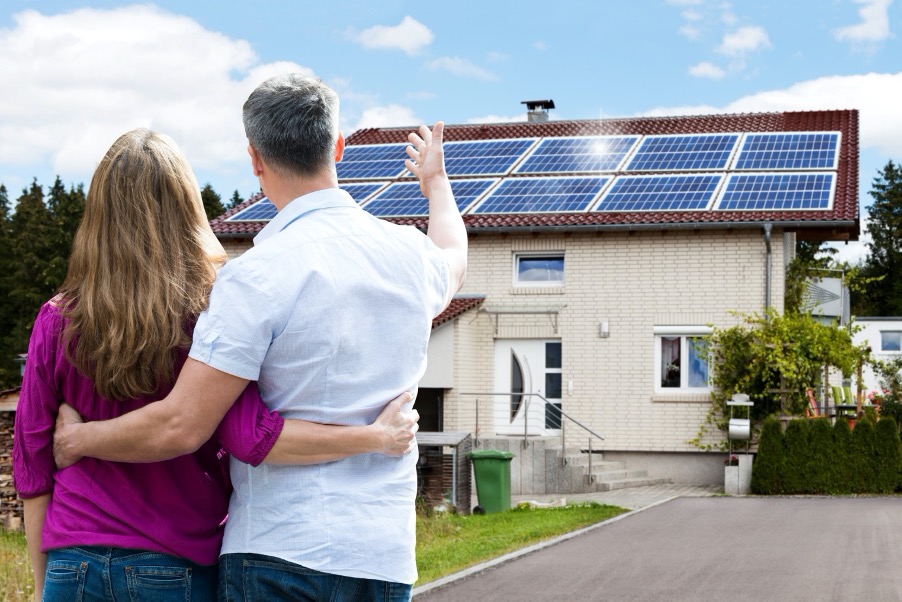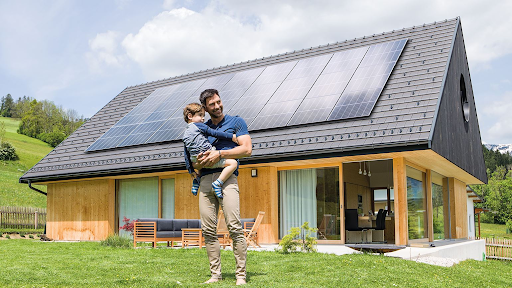Solar energy has long been hailed as one of the most promising sources of renewable energy. With the increasing concern for climate change and the negative impacts of traditional fossil fuels on the environment, the demand for clean and sustainable energy sources has grown exponentially.

In recent years, solar panels have emerged as a popular solution for harnessing the power of the sun and converting it into usable electricity. These panels use photovoltaic technology to capture sunlight and convert it into electricity, making it a reliable and eco-friendly alternative to traditional energy sources.
As the technology behind solar panels continues to advance and become more affordable, countries around the world are investing in this renewable energy source. For example, you should see how Smart Solar Energy’s innovative approach is revolutionizing renewable energy with its cutting-edge Smart Solar Energy Solar Panels.
In this article, we will delve into the world of solar panels and explore the benefits, limitations, and potential for this innovative technology to power our homes and businesses. By harnessing the sun’s abundant energy, we have the opportunity to create a brighter and cleaner future for generations to come.
Maximizing Efficiency: How Solar Panels Work
Solar panels have revolutionized the way we generate electricity by harnessing the abundant energy of the sun. Understanding how solar panels work is crucial in optimizing their efficiency and maximizing their power output.
Solar panels are made up of photovoltaic (PV) cells, which are responsible for converting sunlight into usable electricity. These cells are typically made of silicon and are designed to absorb photons from the sun, releasing electrons in the process. This flow of electrons creates a direct current (DC) that can be converted into alternating current (AC) using an inverter for use in homes and businesses.
To ensure optimum efficiency, solar panels should be strategically positioned to receive maximum sunlight throughout the day, avoiding any obstructions such as shade or debris. Regular maintenance and monitoring are also essential to identify any issues that may impact performance and take prompt action to address them.
By optimizing efficiency through proper placement, maintenance, and monitoring, solar panels can provide a reliable and sustainable source of clean energy for years to come.
Sustainable Energy: The Benefits of Solar
The adoption of solar energy as a sustainable energy source brings numerous benefits to individuals, communities, and the environment. One of the primary advantages of solar power is its renewable nature. Unlike fossil fuels, which are finite resources and contribute to climate change, solar energy relies on a constant and abundant supply of sunlight. By harnessing this power, we can reduce our dependence on non-renewable energy sources and mitigate the harmful emissions associated with conventional electricity generation.
Solar energy also offers financial benefits, as it allows homeowners and businesses to save on their electricity bills by generating their own power. Additionally, solar panels require minimal maintenance and have a long lifespan, making them a cost-effective investment in the long run.
Furthermore, the installation of solar panels stimulates job creation and promotes local economic development, as the industry continues to expand. Embracing solar energy not only provides a sustainable solution for our energy needs but also contributes to a cleaner, greener future for generations to come.
Cost-Effective Solutions: Affordable Solar Panel Installation
When considering the installation of solar panels, affordability is a key factor for many individuals and businesses. Fortunately, there are cost-effective solutions available that make harnessing solar energy more accessible than ever before. Advances in technology and increased competition in the solar industry have resulted in reduced prices for solar panels and installation services.
Additionally, various financing options, such as solar leases and power purchase agreements, allow individuals to install solar panels with little or no upfront costs. These solutions enable homeowners and businesses to take advantage of the long-term cost savings associated with solar energy while minimizing their initial investment.
By choosing affordable solar panel installation, individuals can not only reduce their monthly electricity bills but also contribute to a sustainable future.
Long-Term Investment: The ROI of Solar Panels
Investing in solar panels provides more than just environmental benefits; it also offers a substantial return on investment (ROI) in the long run. While the initial cost of installing solar panels may seem significant, the financial advantages over time make it a wise and profitable investment.
Solar panels have a lifespan of 25 to 30 years, during which they generate free electricity, significantly reducing or even eliminating monthly electricity bills. In addition to saving on energy costs, homeowners and businesses can benefit from various incentive programs and rebates offered by governments and utility companies, further enhancing the ROI.
Moreover, excess energy produced by solar panels can be sold back to the grid through net metering, creating the potential for additional income. With rising energy costs and the increasing demand for clean energy, the value of solar panels as a long-term investment continues to grow.
By harnessing the power of solar panels, individuals and businesses can secure a reliable and profitable ROI while making a positive impact on the environment.
Increase property value with installation
One undeniable benefit of installing solar panels is the potential increase in property value. As the demand for renewable energy continues to rise, properties equipped with solar panels have become highly desirable in the real estate market.

Homebuyers and investors recognize the long-term savings and environmental benefits associated with solar energy, making properties with solar installations more attractive and valuable. Studies have shown that homes with solar panels can fetch a higher selling price and tend to sell faster compared to those without.
Additionally, appraisers are increasingly factoring in the presence of solar panels when determining the value of a property. By investing in solar panel installation, property owners not only enjoy the immediate financial benefits but also position themselves for a higher return on investment in the future.
Conclusion
The use of solar panels has proven to be an efficient and environmentally friendly way of harnessing the power of the sun. With advancements in technology and decreasing costs, more and more individuals and businesses are turning to solar energy as a viable alternative to traditional forms of energy. Not only does it reduce our carbon footprint, but it also offers long-term cost savings and independence from fluctuating energy prices.
As we continue to prioritize sustainability and cleaner energy sources, the potential for solar power to become a major player in our energy production is promising. Let us continue to harness the power of the sun and pave the way towards a greener and more sustainable future.
Interesting Related Article: “What Is the Typical Cost of Solar Panels?“

